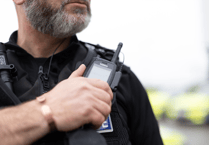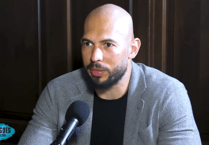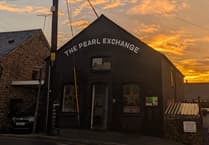I WAS recently interviewed on the radio about my broadcasting career.
It was a very enjoyable chat, but if I am honest I much prefer being the interviewer asking the questions rather than the person answering them.
Inevitably I was asked about the best moments and the worst moments. As always my mind was a complete blank.
Over a career spanning more than 30 years I have done so many different things that it’s often hard to recall highlights; even harder to recall the things you have deliberately tried to forget!
I did eventually manage to come up with a few examples during the interview, but as ever, it was only afterwards that I remembered some of the best and worst events and stories I’d been involved in. Too late then of course!
It was often the case with many of the people I interviewed over the years. I would put them on the spot under the glare of the lights and the remorseless stare of the camera.
Afterwards some of them were clearly annoyed by their own performance because they’d forgotten to mention an important point during the interview.
I experienced some of that frustration after my own recent experience of being interviewed. A book I have been reading suddenly jogged my memory about part of my broadcasting career that I had forgotten to mention.
The book is by the consumer champion and broadcaster Matt Allwright. You will probably know him best for his work on the BBC programmes Watchdog and Rogue Traders.
He has pulled together all his experience of tackling scams and dodgy dealers and written a survival guide for consumers.
I am reading it because I am interviewing him at a book festival next month.
Its remit was to encourage debate and conversation about the issues of the day, but it also set out to solve listeners’ problems.
It was one of the most rewarding things I did during my time at the BBC because it truly helped to make a difference to people’s lives.
I just wish I had remembered to mention it when I was being interviewed recently.
We had some great successes over the years taking on energy firms, telecoms providers and a whole host of other organisations that had let down their customers and our listeners.
I relished the opportunity to take up the cause for a listener who’d been overcharged for a service and then couldn’t get through to anyone to get the problem solved.
It was amazing how often a company could quickly deal with a problem and refund money once they knew they were being exposed on the BBC.
Our programme gained something of a reputation for getting scams highlighted, problems sorted and rogues exposed.
As I work my way through Matt Allwright’s book I am reminded of the sheer scale of scams we all need to be on the look out for.
When I was presenting Devon’s Call we mostly dealt with issues such as unsolicited phone calls offering apparently cheap services, or unsolicited mail offering a prize if you sent money first.
But things have moved on since then. Don’t get me wrong, there are still unscrupulous people who are phoning their victims out of the blue and trying to sell them something.
However, it’s much more sophisticated now and we are all much more vulnerable because so much of what we do is online.
Even the most computer savvy amongst us can get caught out because the scammers are so devious. They use the fact that people are leading busy lives and are often in too much of a hurry to double check things.
It is frightening how easily criminals can dupe people into believing they are dealing with their bank, when in fact they are giving their details to a thief who is about to try to clear the account.
When I was presenting the phone-in programme we used some brilliant experts to help us warn our listeners about the dangers.
Peter Shears, a professor in consumer law at Plymouth University was a regular guest.
We had a direct line to Devon Trading Standards and we had the numbers of the press officers at most of the major utilities – they always dreaded a call from us as they knew they were in trouble.
As consumers we need champions such as Matt Alwright and Martin Lewis on our side more than ever now.
The way we carry out transactions has changed beyond all recognition since the days of Devon’s Call.
It’s transformed our lives in many positive ways, but it’s also left us more exposed and vulnerable to fraudsters.
Matt’s book has been a wake-up call for me. Not only has it reminded me, albeit belatedly, about a highlight of my time as a regular broadcaster, but more importantly it has underlined the fact that scammers have moved with the times. Wherever and however we conduct our lives, those hoping to con us are still lurking in the shadows.
That said we shouldn’t live in fear. There are plenty of safeguards in place as well. That extra level of verification when dealing with your bank online may seem frustrating at times, but it’s for our own protection. We just need to be wary at all times.
Thinking back to my time hosting Devon’s Call, there is one memory I had hoped to forget, but it has just come back to me while writing this. We made a television trailer for the programme with me dressed as a sheriff riding in at high noon each day to solve listeners’ problems. I hope all tapes of that trailer have been erased! Bye for now.





Comments
This article has no comments yet. Be the first to leave a comment.